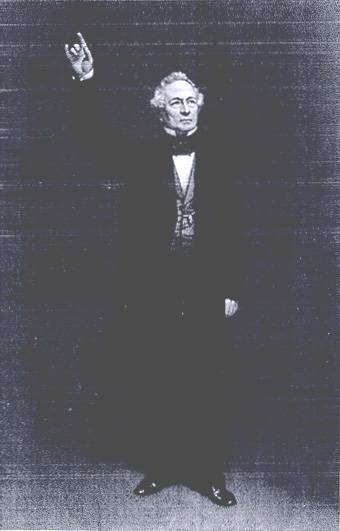Not like this.

And not like this.

What I mean is the “Kiss principle”: Keep it short and simple. (Or, Keep it simple, stupid.)
Anyone can ramble on (and on and on) in a speech. But the speaker who can cut to the heart of the matter quickly and precisely, and leave the audience enthralled – that speaker has understood the essence of good public speaking. Want a good example? Take this little history test.
When you think of the Gettysburg Address, which of the following names comes to mind: Abraham Lincoln or Edward Everett? Chances are you said Lincoln and then wondered, “Who is Edward Everett?”
Everett was a distinguished Congressman, Senator and President of Harvard University. He was a big supporter of Lincoln, and both men shared the podium at the dedication to the soliders’ cemetery in Gettysburg, Pennsylvania.
Everett gave what was, by most accounts, a fine speech . . . that lasted over two hours! Lincoln followed him and gave “the” Gettysburg Address – a speech of less than 300 words that lasted only a couple of minutes.
Shortly thereafter, Everett wrote Lincoln a letter in which he praised the President’s “eloquent simplicity and appropriateness”. It speaks well of Everett’s character that he also wrote, “I should be glad, if I could flatter myself that I came as near to the central idea of the occasion, in two hours, as you did in two minutes.”
Of course, most speeches and presentations cannot be given in a couple of minutes. And there is nothing wrong with a long speech that is well structured and well delivered. Still, much can be done to separate the verbal wheat from the chaff.
I will provide specific suggestions in future posts. For now, just remember the importance of the KISS principle. The next time you are preparing a presentation, rigorously ask yourself: do I really need this much information, this many slides, this number of words, this much time?
By pruning your words carefully, you will find that they make a bigger impact. As Leonardo Da Vinci said, “Simplicity is the ultimate sophistication.”

















6 Replies to “Kiss me, you fool”
John, I am a great supporter of the KISS principle, especially after going through over a hundred power point slides and pages and pages of Word documents that my colleagues used to send to me for review. The problem seems to be that the speaker/author wants to be prepared for every eventuality and would like to have all the information at their finger tips. Wish they would spend some time prioritizing what they want to convey and put that first. The rest can be discarded or at best kept as back-up slides.
Agreed. Keep it short and simple and leave the audience wanting more. Regards, Vince
I never knew about Edward Everett. Thank you!
Clear and convincing. Good luck for your new blog!
I have always heard the KISS acronym broken down as “Keep it Simple, Stupid!”. I was very happy to see that you have stated it as “Keep it Short and Simple”. Needless to say I was content to, for once, not be put down when reading or hearing this principle.
Unfortunately, I checked back with the title of your blog “KISS me, you fool”. Sigh…
Great post again, Mr. Zimmer.
They say that up to 90% of our communication is non verbal. Kissing, for example, gets the idea across without a single word. I have sesquipedalopholia (fear of big words) so I go for simplicity whenever I must speak in public. John this is a great blog and might even help people like me. Many thanks.